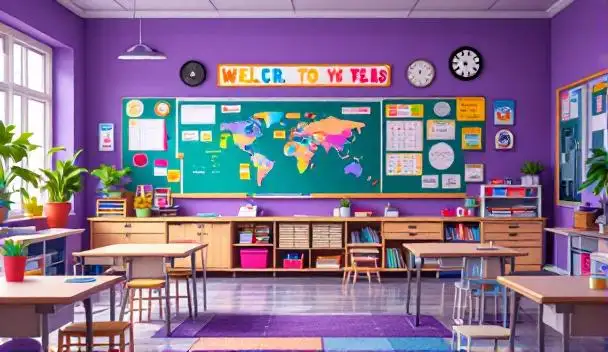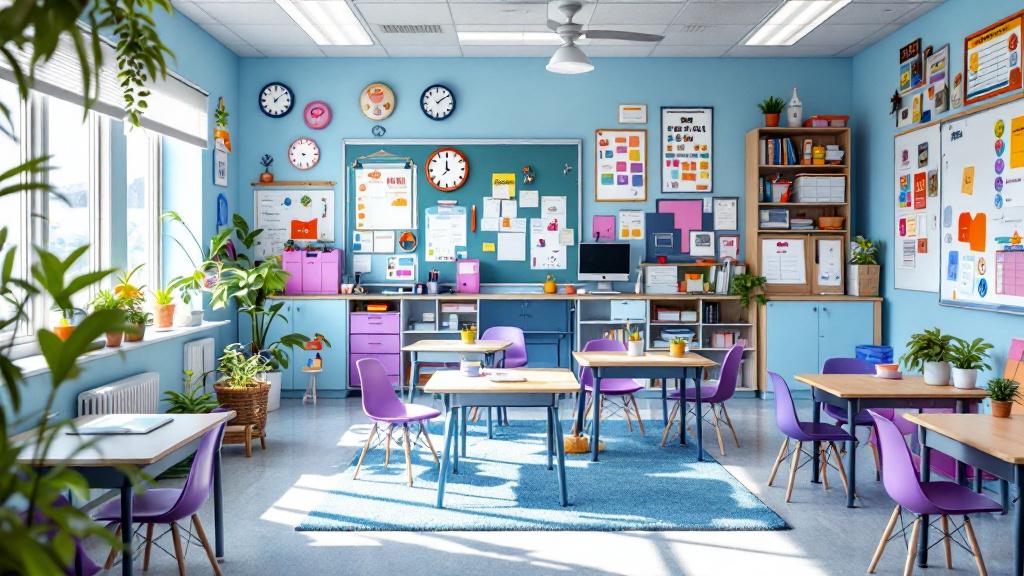Understanding the Personalized Approach of ABA
Applied Behavior Analysis (ABA) therapy is renowned for its structured and scientific approach to enhancing social skills in individuals with autism spectrum disorder (ASD). What sets it apart is its commitment to individualized training, which tailors techniques and strategies to the specific social challenges faced by each individual. This article unpacks the importance of this personalized approach, shedding light on how it transforms the social abilities of those with autism.
Core Components of ABA and Their Role in Social Skills Development

How does ABA therapy help with social skills?
ABA therapy is instrumental in enhancing social skills in children with autism spectrum disorder (ASD) by breaking down complex interactions into digestible steps. Therapists begin by assessing the child's unique strengths and needs, allowing for tailored goal setting specific to each child's context.
Some key techniques employed in ABA for social skills development include:
- Modeling: Demonstrating appropriate social behaviors for the child to emulate.
- Shaping: Gradually teaching a skill by reinforcing successive approximations towards the final behavior.
- Positive Reinforcement: Encouraging desired behaviors through rewards, thus increasing the likelihood of those behaviors being repeated.
Through these techniques, children learn vital skills such as turn-taking, engaging in reciprocal conversations, and active listening. This structured approach not only assists with individual skill acquisition but also fosters the understanding of nonverbal cues and emotional recognition.
Importance of individualized goal setting
Individualized goal setting is central to ABA therapy's effectiveness in social skills training. Each child receives a thorough assessment, which helps identify their specific needs. This personalized strategy ensures that the skills being taught are relevant and actionable, allowing children to tackle their unique challenges head-on.
Role of positive reinforcement and modeling
Positive reinforcement plays a critical role in sustaining children’s interest and motivation throughout therapy. By validating efforts through rewards, children become more engaged in learning new social skills. Furthermore, modeling serves as a vital teaching tool—by observing appropriate interactions, children can learn and replicate necessary social behaviors in real-time.
Thus, ABA therapy equips children with essential social skills, paving the way for improved communication, confident social interactions, and ultimately, a better quality of life.
The Need for Individualization in Social Skills Training

Why is Individualized Social Skills Training Important for Learners with Autism?
Individualized social skills training is crucial for learners with autism because they often face unique challenges in understanding and navigating social situations. While many people acquire social skills naturally, individuals on the autism spectrum typically require explicit instruction and structured practice to develop these abilities effectively.
This tailored approach is informed by thorough assessments that highlight each child's specific strengths and needs. Customizing training strategies means that therapists can focus on unique challenges, employing techniques like shaping, modeling, and reinforcement to address gaps in social understanding.
Personalized Strategies for Social Skills Training
A variety of strategies can be incorporated for effective social skills training. These may include:
- Social Narratives: Tailored stories that help interpret social cues and expected behaviors in various situations.
- Comic Strip Conversations: Visual tools that break down social interactions into manageable parts, enhancing comprehension.
- Social Scripts: Pre-planned dialogues that assist in navigating specific social contexts by providing verbal cues.
These individualized methods aim to foster meaningful connections, helping individuals practice and apply social skills in real-life situations.
Programs Like PEERS for Targeted Development
Programs like the Program for the Education and Enrichment of Relational Skills (PEERS) offer structured training aimed at enhancing social competence among youth with autism. This program focuses on gradual skill-building over time, which promotes increased engagement in social environments.
The importance of personalized training cannot be overstated. By reinforcing strengths and directly addressing challenges, social skills training can significantly enhance overall well-being and improve social interactions for individuals with autism.
Key Social Skills Enhanced Through ABA Therapy

Essential Social Skills Targeted in ABA
ABA therapy focuses on developing several critical social skills for children with autism spectrum disorder (ASD). These include:
- Reciprocal Conversations: Engaging in back-and-forth dialogue.
- Identifying Emotions: Recognizing and understanding various emotional expressions.
- Nonverbal Communication: Using and interpreting cues like gestures and facial expressions.
- Interactive Play: Participating in cooperative play with peers.
- Active Listening: Being attentive and responsive during conversations.
Methods for Teaching Skills
To teach these skills, ABA therapists employ various strategies:
- Shaping: Breaking down complex skills into smaller, manageable steps.
- Modeling: Demonstrating appropriate behaviors for children to imitate.
- Role-Playing: Practicing social interactions in a controlled setting.
- Social Stories: Using narratives to clarify social situations and appropriate responses.
Generalization of Skills
Generalizing skills is vital to help children apply what they've learned in real-world settings. ABA training often occurs in structured environments like one-on-one sessions or social skill groups, ensuring children can utilize their improved social skills with peers and in various contexts. This focus on real-life application enhances the effectiveness of ABA, making social skills more likely to transfer outside the therapy room.
Techniques for Effective Social Skills Training in ABA

Use of Techniques Like Shaping, Modeling, and Positive Reinforcement
ABA therapy employs various techniques to enhance social skills, with shaping, modeling, and positive reinforcement being among the most prominent. Shaping involves breaking down complex social interactions into smaller, manageable steps, allowing children to make gradual progress. Modeling provides children with concrete examples of desired social behavior, facilitating understanding of appropriate communication. Positive reinforcement encourages children to repeat these behaviors by rewarding them for their successes, further enhancing their learning experience.
Natural Environment Training (NET)
Natural Environment Training (NET) plays a critical role in teaching social skills in real-world settings. NET incorporates the child's interests into learning, prompting them to use newly acquired skills spontaneously in a familiar environment. This approach not only reinforces learning but also makes social interactions more meaningful and relevant for the child, thus fostering greater engagement.
Role of Social Stories and Role-Playing
Social stories and role-playing are valuable tools in ABA therapy, used to improve understanding of social norms and expected behaviors. Social stories depict different social scenarios, helping children recognize social cues and appropriate responses. Role-playing allows children to practice these skills in a controlled setting, making them better prepared for actual interactions. Together, these techniques provide comprehensive support for developing essential social skills, making interactions less daunting for individuals with autism.
The Role of Structured Settings in ABA Therapy
Importance of Controlled Environments for Learning
Structured settings are vital in ABA therapy, providing a controlled environment where children with autism can focus on developing their social skills. These environments offer a predictable framework, allowing therapists to implement tailored techniques while minimizing distractions.
Transition from Structured Settings to Real-Life Applications
One of the ultimate goals of ABA therapy is to help individuals generalize the skills they learn in structured settings to real-life situations. This transition is facilitated through consistent practice and the use of techniques like Natural Environment Training (NET), designed to encourage spontaneous social interactions in everyday scenarios.
Benefits of Social Skill Groups and One-on-One Therapy
Both social skill groups and one-on-one therapy sessions play crucial roles in teaching social skills.
- Social Skill Groups: Encourage peer interaction, providing a platform for practicing skills such as reciprocal conversations and interactive play.
- One-on-One Therapy: Allows for personalized attention, ensuring that goals are targeted to the child’s specific strengths and needs.
Together, these settings empower children to build confidence and enhance their ability to navigate social situations effectively.
The Impact of ABA on Communication and Social Interaction
Improvements in communication and emotional regulation
ABA therapy significantly enhances communication skills for individuals with autism spectrum disorder (ASD). By breaking down complex social skills into manageable steps, therapists tailor their approaches based on each child's unique strengths. This individualized training helps children identify emotions, engage in reciprocal conversations, and understand nonverbal cues.
Equally important, ABA equips children to regulate their emotions, allowing them to navigate social interactions more comfortably. Developing these skills fosters not just communication, but also emotional awareness.
Boosted confidence and overall quality of life
Children who engage in ABA therapy often exhibit increased confidence when interacting with peers. By practicing skills in structured environments like one-on-one sessions or social groups, they become adept at generalizing these skills to real-life situations. With improved social interaction and confidence, these individuals experience an enhanced quality of life, establishing more fulfilling relationships.
Evidence of ABA's effectiveness
Numerous studies underline ABA's effectiveness in promoting social skills among individuals with ASD. Techniques such as shaping, modeling, and the use of social narratives provide a comprehensive framework for teaching. The consistent application of these methods leads to impactful, long-lasting improvements in communication and social engagement, confirming ABA therapy's role as a beneficial intervention.
Collaboration and Cultural Considerations in ABA

Working with Caregivers and Educators
Collaboration is crucial in ABA therapy, especially for social skills training. Therapists work closely with caregivers and educators to ensure that social skills learned in therapy can be reinforced across different environments. This collaboration allows for consistency in applying techniques and strategies that enhance social interactions.
Cultural Sensitivity in Individualized Programs
Understanding cultural differences is essential when creating individualized programs for children with autism. Therapists must consider cultural backgrounds to tailor social skills training appropriately. This sensitivity helps in selecting relevant social narratives and behavioral expectations.
Challenges in Implementing Social Skills Training
Despite its benefits, ABA therapy faces challenges such as the need for individualized approaches. Maintaining engagement from both caregivers and children can be challenging. Cultural factors may also influence the applicability of certain methods, necessitating flexible approaches to optimize outcomes in diverse contexts.
| Challenge | Description | Potential Solution |
|---|---|---|
| Individualized Needs | Each child has unique social skill challenges | Comprehensive assessments to guide personalized plans |
| Caregiver Engagement | Inconsistent support from caregivers can hinder progress | Regular training and meetings to align strategies |
| Cultural Relevance | Strategies may not fit all cultural contexts | Adapt programs to incorporate cultural perspectives |
By proactively addressing these issues, ABA therapy can more effectively improve the social skills of individuals with autism.
Addressing Challenges in Social Skills Training
Importance of Personalized Assessments
The foundation of effective social skills training in ABA therapy is rooted in thorough personalized assessments. Each child with autism spectrum disorder (ASD) has unique strengths and challenges. Identifying these through tailored evaluations allows therapists to set specific, individualized goals that address the child's unique social needs.
Strategies for Overcoming Social Intuition Deficits
Children with ASD often struggle with social intuition, making everyday interactions daunting. Strategies like social narratives and comic strip conversations can help bridge this gap, providing relatable and structured frameworks for understanding social cues and contexts.
Adapting Techniques to Individual Needs
No single approach fits all. Techniques such as Pivotal Response Training and Natural Environment Training are adapted to suit individual preferences, enabling smoother integration of learned social skills into real-world situations. Flexibility and creativity are crucial in addressing varied social challenges.
The Transformative Power of Personalized ABA Therapy
Individualized social skills training in ABA therapy offers a beacon of hope for individuals with autism, reinforcing the concept that tailored interventions lead to significant improvements. By focusing on each individual's unique strengths and challenges, ABA therapy not only bolsters social skills but also enhances overall well-being, confidence, and quality of life. As we continue to recognize the value of personalized approaches, the potential for fostering meaningful social connections becomes ever more achievable, creating possibilities for more fulfilling interactions and relationships for those on the autism spectrum.
References
- How ABA Therapy Helps With Social Skills
- Exploring the Role of ABA Therapy in Enhancing Social Skills for ...
- Social Skills Training ABA: Enhancing Interpersonal Development
- Social Skills Training in Applied Behavior Analysis? ASD
- ABA Therapy's Impact on Social Skills
- How ABA Therapy Helps With Social Skills
- ABA Therapy
- Benefits of ABA Therapy - Blue ABA





































































































